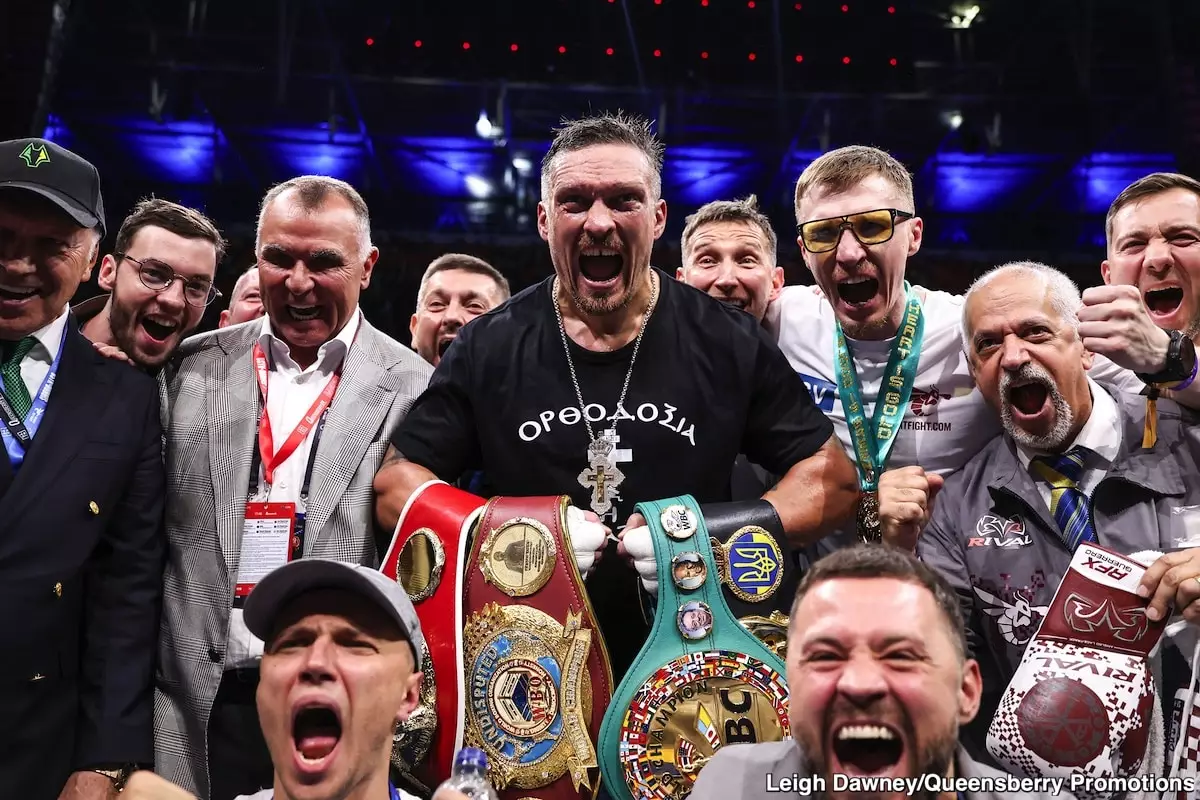Oleksandr Usyk’s recent victory at Wembley Stadium is more than just another chapter in his illustrious career—it’s a paradigm shift for heavyweight boxing. His fifth-round knockout of Daniel Dubois not only sealed the win but cemented his status as an unrivaled legend in the sport. Unlike many fighters who chase fleeting fame or momentary titles, Usyk has crafted a legacy grounded in consistency, intelligence, and resilience. His journey from cruiserweight dominance to heavyweight supremacy exemplifies a mastery of the craft that few can match, let alone surpass. He is not merely chasing greatness; he is embodying it.
What sets Usyk apart is his relentless pursuit of excellence without the need for theatrics or controversy. His victories are technical masterpieces—strategic, patient, and meticulously executed. His footwork, ring IQ, and precision are the tools of a true artist in combat. While others rely on brute strength or intimidation, Usyk’s approach is composed, cerebral, and ruthlessly effective. This is a testament to his understanding that in boxing, finesse often trumps sheer power. His ability to adapt to different opponents across multiple weight classes underscores his deep understanding of the sport’s subtleties.
Steady Domination of the Cruiserweight Division
Usyk’s rise in the cruiserweight division was nothing short of historic. He swept through every top contender—facing them in their own backyard, whether it was Latvia, Russia, Poland, or Germany—and emerged victorious each time. His unyielding approach defied the often-criticized notion that fighters must protect themselves behind national or promotional barriers. Instead, he traveled, fought, and won without concessions. His unification of the cruiserweight belts was not just an achievement; it was a statement that the best should earn their titles wherever they are contested.
This fearless pursuit of dominance set the foundation for his move to heavyweight, a division where physicality often dictates the narrative. Critics questioned whether he possessed the size for the heavyweight class, but Usyk responded with methodical mastery—defeating Anthony Joshua twice, with the second victory culminating in a clearer, more decisive win. He then challenged Tyson Fury, taking a chapter out of legendary narratives by pushing into uncharted territory, culminating in his reclaiming of the undisputed heavyweight crown after a brutal knockout of Daniel Dubois.
Why The Competition Is Foolish and The Future Uncertain
Given his resume and momentum, the question emerges: who can realistically threaten Oleksandr Usyk? The contenders are few and unimpressive in comparison when measured against his skill set and experience. Names like Zhilei Zhang and Filip Hrgovic are superficial threats at best—slower, predictable, lacking the agility and rangy movement that Usyk exploits effortlessly. Arslanbek Makhmudov offers raw power, but his defensive deficiencies and predictable style play right into Usyk’s technical counterpunching.
More notably, opponents like Joseph Parker or Joe Joyce lack the speed and adaptability to trouble him substantially. Parker’s respectful posture and passive pace are no match for Usyk’s lateral movement and intelligence; Joyce’s size and pressure, while formidable, would be neutralized by Usyk’s footwork and tactical mastery. The truth is, Usyk has already outclassed virtually everyone worth mentioning, repeatedly and convincingly.
Why continue to chase fights that serve no purpose other than fill in a schedule? At 37, with a perfect record, an Olympic gold, and multiple undisputed titles, Usyk’s career trajectory suggests he shouldn’t settle for less. He deserves the grand arenas, pulsating crowds, and the history-making moments that only a big-money, high-profile fight can deliver. Remaining in the shadows or defending minor belts for the sake of “legacy preservation” would diminish his remarkable achievements.
Legacy as a Final Measure of Greatness
Usyk’s résumé is already a blueprint for greatness. His undefeated record, combined with victories over every major belt-holder, paints a picture of a fighter who not only wins but conquers with class. His transition from amateur to professional, from cruiserweight to heavyweight, and his ability to unseat the very best in each category signals something extraordinary—an athlete whose dedication and intelligence rewrite the rules of modern boxing.
In a sport often marred by controversy, hype, and fleeting fame, Usyk stands apart as a true craftsman of the sweet science. His style is elegant yet brutal, precise yet adaptable. He’s demonstrated that size and power are not inviolable laws; technique and heart remain paramount. As he continues to mold his legacy, there’s an undeniable truth: in the grand narrative of boxing, Oleksandr Usyk writes his own chapter of timeless greatness—one that will be studied and revered for generations to come.

